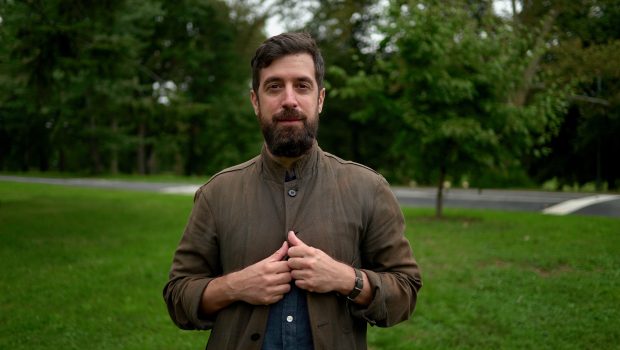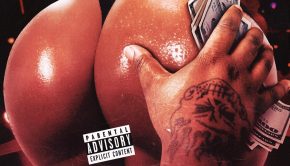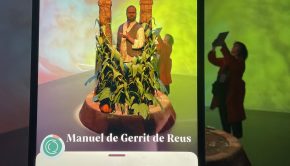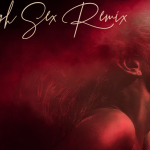David Cieri On Composing For Ken Burns, Playing At Carnegie Hall & Living In New York
A musician and composer with over 40 years of experience as a pianist, David Cieri has studied under renowned pianist and harpsichordist Mary Jo Horton, Argentinean pianist Americo Caramuta, and ECM recording artist Art Lande. While running the music end of a major jazz club in Denver, Cieri had encountered — and played with – the likes of Mike Clark of Herbie Hancock’s Headhunters and notable bassists like bassists Rob Wasserman, Les Claypool, George Porter, Tony Franklin and Alfonso Johnson. Prior to that, Cieri was a member of the band Chief Broom, which was part of the 1997 Horde tour alongside Neil Young and Crazy Horse, Medeski Martin and Wood, Col. Bruce Hampton, Anders Osborne, Morphine, Primus, and Beck. Simply put, the guy has a unique musical pedigree.
Now a New York City resident, Cieri is well-known for his on-going collaboration with documentarian Ken Burns, including scoring work for Baseball: The Tenth Inning, the 2017 release The Vietnam War, and the Emmy-winning National Parks series. He has provided music to recent non-Burns works like the 2013 Oscar-nominated Booker’s Place: A Mississippi Story and the 2015 documentary on President Gerald Ford. All the while, Cieri still performs live, including a recent gig at Carnegie Hall.
I had the pleasure of interviewing David Cieri for The Hype Magazine about his life as a prolific musician and plenty more. More on Cieri can be found online at www.davidcieri.com.
You were a working pianist before becoming a composer. Was it the plan all along to be a composer? Or do you just look at composing as one of the things you do?
David Cieri: Always having been an improviser, composing and playing have always been a double helix. When I am swimming in the piano as I do for a few hours each morning, in the overtones and the textures I am cultivating the energy and the impulse to generate more musical questions, which I then try to answer. It’s being a musician — piano and other sound-making things and composing at once — in the attempts at answering I am composing in real time. The pieces I write are about these questions I have proposed beforehand. Sort of like the ways in which we talk a problem out until we find a distilled cellular ember that we want to hold on to. Talking it out on the piano is the playing, which slightly starts to winnow into crystallized ideas, and those ideas make up the composing. Like a crucible in-process. Although outcomes are different, keeping the “impurities” alive and around is just as life-giving as keeping the sacrosanct sounds. Its sounds without borders.
The majority of people hear music in the background on television and in movies, but never think about where it comes from. What was the first show or movie that made you realize that someone was in a studio actually composing for that project?
David Cieri: Well, one sound incident that I remember. I was watching some high seas shootout kind of thing very late at night. I was tipping ever so slightly into dreamland when suddenly picture and sound seemed, well, crooked and out of joint. The scene consisted of this high-seas naval battle and every once in awhile, I heard these Wild West gun sounds popping off — like the ricochet sounds that a rifle makes in a big canyon. I remember really loving this “mistake” and laughing about it. And incidentally it opened me up to the idea that strange and wonderful sensibilities were back there turning the dials. People in this case either with budget constraints, or being super-imaginative in playing games with the shadow of sound which is indelibly attached to image.
What is a typical day for you like when there’s music to write? Was it a lot different when you spent a few weeks in Vietnam for your recent Ken Burns project?
David Cieri: I am always writing in a way, because every moment is a reach to stay violently awake to the possibilities in looking and listening and experiencing, which all get folded into the sounds in one way or another. A real fortunate thing for me about a life in the arts is that even when I am depressed, anxious, joyous, angry, very sensitive, root canal, church pew, gutter on 14th Street or whatever. I can pour these shards of being into the music. Visiting Vietnam so as to prepare for the writing for the film was different in that I was in a place that contained so many more unfamiliar thing —
the smells of the outdoor street vendor’s dishes and the tastes and the magnificent arias they would sing. The smoke of little fires everywhere. The Catru concerts. The peaks and valleys of the language itself.
How did you and Ken first meet?
David Cieri: Ken and I first met at a sound editing session in New York City for The National Parks. I first met his editor, Erik Ewers, at a long-gone beautifully nightmarish hotel on the Upper West Side in Manhattan. My first five years in New York City, I played piano at this David Lynch-ish hotel and this man approached and asked what I was doing in New York City. I blurted out that I was looking to make music for documentaries. He laughed and left me a Florentine Films letterhead torn from the page. Now Erik is my lifelong friend. The National Parks assignment came in a few months later, and from there I met Ken.
As someone who has been working with Ken for a long time, do you feel that there are any misconceptions about him?
David Cieri: All of the conceptions I have ever heard about him are true in my experience — endlessly curious, razor-sharp intelligence, great sense of humor, a loyal and dedicated practitioner of using the unadulterated truth to bind us together.
Did you encounter Trent Reznor or Atticus Ross when working on The Vietnam War? Or while doing press?
David Cieri: No, we didn’t cross paths.
Is there a particular credit of yours that you’re most proud of?
David Cieri: If by credit, you mean an association with collaborators that I love and admire, then yes, this latest Vietnam film credit means a great deal to me.
I see that you played Carnegie Hall last year and recorded it for an upcoming release. What can you tell me about that?
David Cieri: There won’t be a release of this music in any way other than the video captures online.
Are there any other upcoming projects you can talk about?
David Cieri: I am in the middle of film projects at the moment, so I am experimenting right now with still photographs and prints — Salgado, Abe, Levitt, Schiele — fooling around with string quartet, trio music, and playing a lot with old synthesizers. I’m also at the beginning of writing music for Dreyer’s The Passion Of Joan Of Arc. Also, I am playing a lot of music with the great choreographer and dancer Allison Plamondon. She is a force. Lastly, three new releases this year are being finalized, music and poetry recording called Dark Furniture with poet Yusef Komunyakaa out in June on Ropeadope Records and two soundtrack releases.
When you are not busy with work, how do you like to spend your free time?
David Cieri: I feel something like a whole lot of gratitude to be able to say that my work and my free time are the same thing most of the hours. I love to read — I just finished Adam Gopnik’s Angels And Ages, I am feeling so moved by this work of art — and fool around with taking pictures, and walk everywhere in the city, and watch movies, and cook, and oh, The Crown. I’ve been having so much fun watching this series.
What was your favorite album of 2017?
David Cieri: I am a terrible practitioner of favorites but if I must pick, it’d be Bill Frisell’s Small Town. Incidentally, we just finished a recording session together a few weeks ago along with many of my favorite musicians for a new documentary coming out in December 2018 on PBS.
What’s the next concert you’ll be attending?
David Cieri: Live score for Jonny Greenwood’s Phantom Thread at BAM in February.
Finally, David, any last words for the kids?
David Cieri: I’m still one of those so when there is in fact an adult in the room, let me know. I’ll be listening. With that admission out of the way, we are currently being threatened by loud voices priding themselves on lack of reason and respect for truth values, most notably of course, Trump. So as Patrick Moynihan said, you are entitled to your own opinions, but you are not entitled to your own facts. Let’s get quiet enough to listen with clarity and intent — away from the maelstrom of an empty and insatiable materialism, and into our sacred and inborn powers of reason, imagination, wonder, truth, being, love, humor, connectedness… Music truly is a little and strange mirror that gives us passage into these fundamentally clear and human places. Sunlight is said to be the best disinfectant.


































